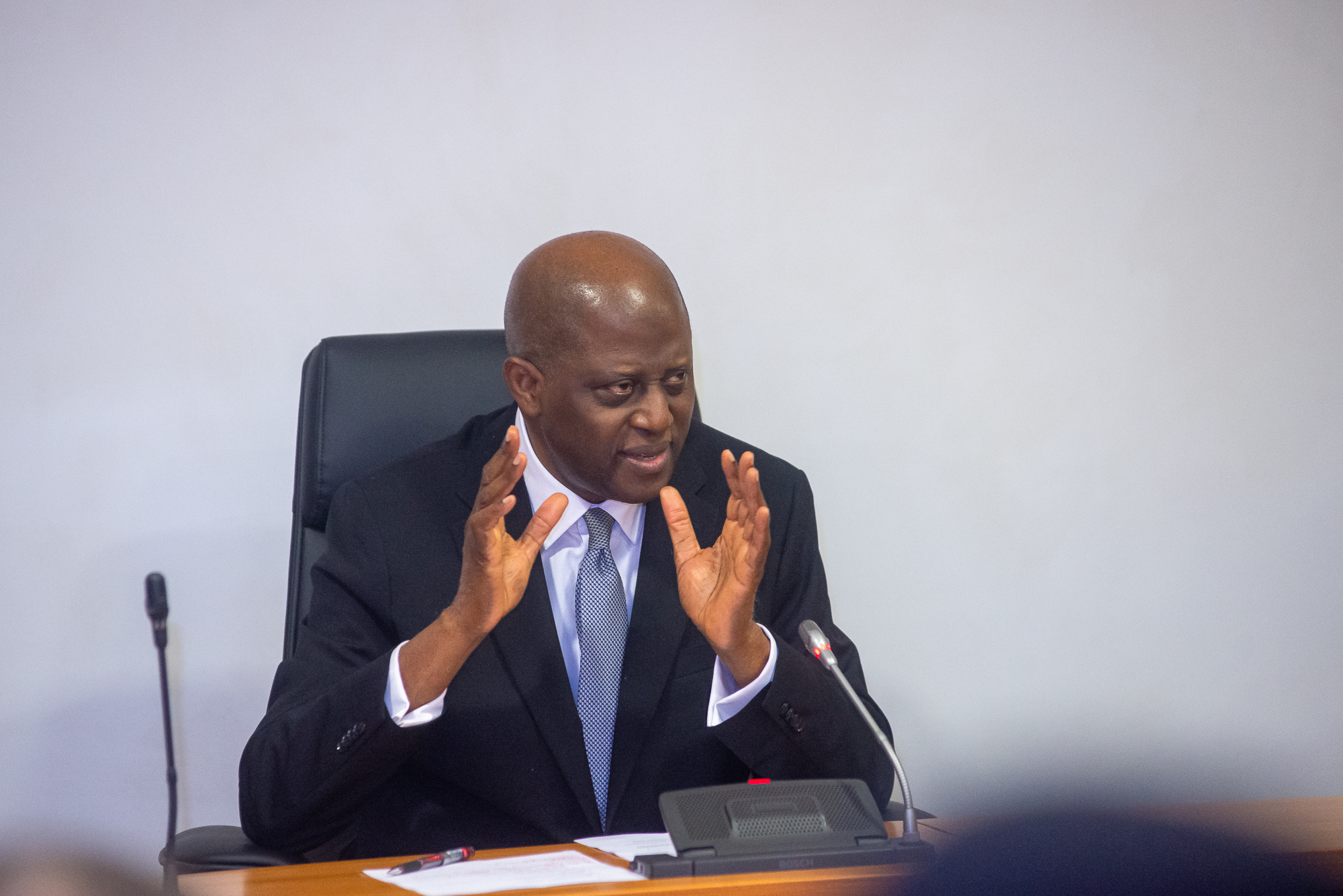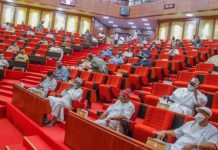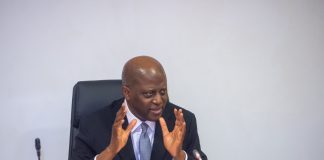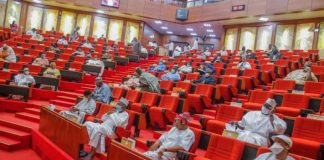🌿 Ruzu Non-Alcoholic Herbal Bitters
Ruzu Non-Alcoholic Herbal Bitters is a natural health supplement specially formulated to:
- ✅ Promote general wellness
- ✅ Detoxify the body
- ✅ Support the treatment of various ailments
Made from a powerful blend of 100% organic and medicinal herbs, Ruzu is completely alcohol-free, making it ideal for:
- 👪 All age groups
- 🌱 Health-conscious individuals
- 🌿 Anyone seeking non-alcoholic herbal remedies
Whether you're looking to boost your vitality, cleanse your system, or support healing the natural way, Ruzu Bitters offers a trusted herbal solution.
Yemi Cardoso, the governor of the Central Bank of Nigeria (CBN), claims that during the previous 12 months, the federal government has made concrete actions to revitalize the Nigerian economy.
At the Bankers’ Committee Retreat on Friday in Abuja, which had as its topic “Contract and Commitment to National Development and Economic Growth,” Mr. Cardoso made this statement.
The nation was making steady progress in a number of economic areas, he said, and he urged the public and private sectors to work together and build on the modest gains.
As we assemble here, we are acutely aware of the issues that have plagued our country recently, including unemployment, poverty, growing prices, insecurity, and infrastructure deficiencies.
“It’s not all bad news. We have seen tremendous progress in recent years from both public and private partners in taking use of the enormous opportunities at our disposal to change the course of our country’s history.
But even if things have been moving along steadily, there is still a long way to go.
Focus, creativity, and unflinching resolve are necessary for the work at hand in order to transform our collective
“Future,” he said.
He called on the Bankers’ Committee to come up with bold ideas and contribute significantly to the nation’s economic progress.
This retreat’s theme was chosen with deliberation in order to encourage greater cooperation and a renewed sense of dedication as we work to create a better future for present and future generations.
He declared, “We will have thought-provoking conversations, exchange knowledge and experiences, and look at innovative answers to the urgent problems confronting our country over the next few days.”
He instructed the group to follow these guidelines:
How can we make the business environment better for everyone, including SMEs and big corporations?
How may public-private partnerships be more effectively utilized for the building of infrastructure?
“What are the best strategies to address our workforce’s skill gaps?” Mr. Cardoso asked.
He encouraged the members of the committee to discuss how the nation could create an environment that encourages and facilitates innovation.
According to him, they should also focus on ways to strengthen the social contract with Nigerians in order to create a more inclusive economy.
Kashim Shettima, the vice president, also spoke, stating that the retreat’s subject established the connection between development and progress.
Tope Fasua, special assistant on economic affairs in the Office of the Vice-President, represented Mr. Shettima.
He asserts that while an economy may expand without developing for a limited amount of time, true economic development cannot occur without expansion.
The banks, he claimed, were essential to significant economic expansion.
Every country strives for GDP production growth on a minute-by-minute basis, and our banks are essential to that growth.
He stated, “This is in aiding transactions, serving as repositories for investments and savings, and obtaining credits of all kinds and forms.”
He exhorted the banks to strengthen their function as engines of economic expansion.
He believes that the growth of banks and the overall state of the economy should be positively correlated.
“The country’s overall GDP growth figures should at least slightly reflect the strong profitability we have witnessed in that sector.
Read Also: Rivers Tragedy: Police Take Down Cultist Responsible for Killing Couple and Four Cops
In fact, we ought to talk more about causality than correlation. We are aware that you are capable of handling the work,” he added.
The federal government, according to Mr. Shettima, plans to abandon the typical suboptimization that has characterized the Nigerian economy for many years.
The economy might be genuinely exceptional, he claimed, and it could support its leading position on the African continent and beyond.
This is the reason behind some of the hard reforms that are currently occurring.
As the courageous leader that he is, Mr. President has persevered in supporting the long-term view despite opposition.
The abolition of gasoline subsidies and the harmonization of Naira rates in the official market are the main measures. They also aim to reduce the disparity with parallel markets.
Additionally, there are changes to taxation and monetary policy, particularly in the manner that developments in ways and means are handled.
Despite the difficulty of putting these reforms into practice, we can see that they are starting to have an impact.
“All we ask is for our people to be a little more persistent while the reforms are being implemented,” he stated.
















